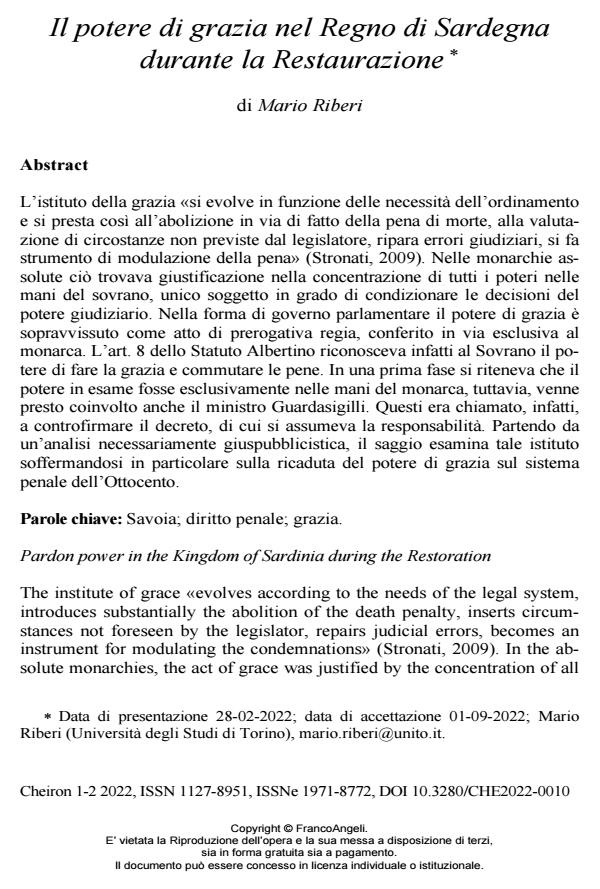Pardon power in the Kingdom of Sardinia during the Restoration
Journal title CHEIRON
Author/s Mario Riberi
Publishing Year 2023 Issue 2022/1-2
Language Italian Pages 16 P. 169-184 File size 179 KB
DOI 10.3280/CHE2022-001010
DOI is like a bar code for intellectual property: to have more infomation
click here
Below, you can see the article first page
If you want to buy this article in PDF format, you can do it, following the instructions to buy download credits

FrancoAngeli is member of Publishers International Linking Association, Inc (PILA), a not-for-profit association which run the CrossRef service enabling links to and from online scholarly content.
The institute of grace «evolves according to the needs of the legal sys-tem, introduces substantially the abolition of the death penalty, inserts circumstances not foreseen by the legislator, repairs judicial errors, becomes an instrument for modulating the condemnations» (Stronati, 2009). In the absolute monarchies, the act of grace was justified by the concentration of all powers in the hands of the Sovereign, the only person capable of influencing the decisions of the judiciary power. In the parliamentary government, the power of pardon survived as a royal prerogative, conferred exclusively to the Monarch. Art. 8 of the Alber-tine Statute in fact recognized the Sovereign the power to grant pardons and to commute condemnations. In a first phase, it was believed that the power in question was exclusively in the hands of the Monarch, however the Minister of Justice was soon involved as well. In fact, he had to countersign the decree of grace, for which he assumed responsibility. Starting from a public law analysis, the essay aims to examine this institute of grace, focusing in particular on the impact of this power on the penal system of the Nineteenth century.
Keywords: Savoy; criminal law; grace.
Mario Riberi, Il potere di grazia nel Regno di Sardegna durante la Restaurazione in "CHEIRON" 1-2/2022, pp 169-184, DOI: 10.3280/CHE2022-001010